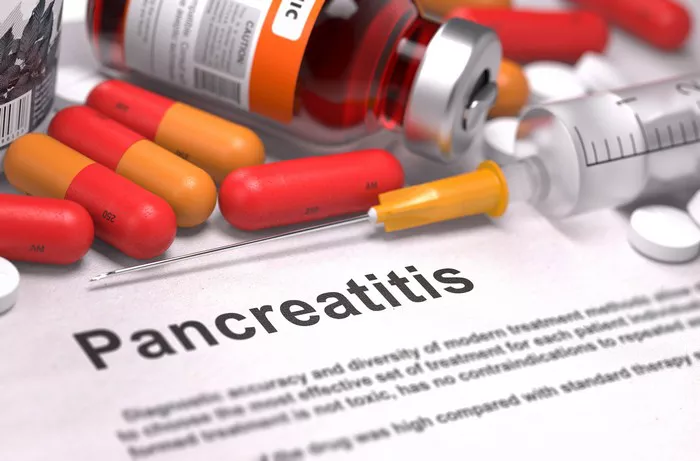As the flu season approaches each year, healthcare professionals advocate for the flu vaccine as one of the most effective preventive measures against influenza. However, amidst the widespread promotion of flu shots, concerns occasionally arise regarding potential adverse effects. One such concern is whether the flu shot can lead to arrhythmias, irregular heart rhythms that can range from harmless to life-threatening. In this article, we delve into the research and scientific understanding to answer the pressing question: can the flu shot cause arrhythmias?
What Is Arrhythmias?
Before exploring the potential link between flu shots and arrhythmias, it’s crucial to grasp what arrhythmias entail. Arrhythmias refer to abnormalities in the rhythm of the heartbeat. While some arrhythmias are benign and may go unnoticed, others can be serious and require medical intervention.
Arrhythmias can manifest in various forms, including:
Atrial fibrillation (AFib): Characterized by rapid and irregular heartbeat originating in the atria.
Ventricular fibrillation: A life-threatening condition where the heart’s lower chambers quiver instead of pumping blood.
Bradycardia: A slower than normal heart rate.
Tachycardia: A faster than normal heart rate.
These irregularities in heart rhythm can result from diverse factors, including underlying heart conditions, electrolyte imbalances, medications, and, in some cases, infections.
The Flu Shot And Its Components
The flu shot, also known as the influenza vaccine, is designed to stimulate the body’s immune response against specific strains of the influenza virus. Most flu vaccines are composed of inactivated or weakened flu viruses, along with other ingredients aimed at enhancing the body’s immune response to the vaccine.
Common components of flu vaccines include:
- Inactivated flu viruses or viral proteins
- Stabilizers to maintain the vaccine’s potency during storage
- Adjuvants to boost the body’s immune response
- Preservatives to prevent bacterial or fungal contamination
- Traces of egg proteins (in vaccines produced using chicken eggs)
These ingredients are carefully selected and tested to ensure vaccine safety and efficacy. However, concerns have been raised about potential adverse reactions, including allergic responses and, as some speculate, cardiac events such as arrhythmias.
Examining The Evidence
Research investigating the relationship between flu shots and arrhythmias has produced mixed findings. While some studies suggest a possible association, others find no significant link between the two.
A study published in the Canadian Medical Association Journal in 2006 examined the risk of cardiac events, including arrhythmias, following influenza vaccination. The study, which analyzed data from over 270,000 elderly patients, found a small but statistically significant increase in the risk of hospitalization for arrhythmias within the first days following vaccination.
However, the absolute risk remained low, and the study authors emphasized the importance of influenza vaccination in preventing flu-related complications.
Conversely, a large-scale study published in JAMA Internal Medicine in 2014 found no increased risk of cardiovascular events, including arrhythmias, following influenza vaccination.
The study, which included over 100,000 adults with a high cardiovascular risk, concluded that flu vaccination was not associated with a higher risk of cardiovascular events in the short term.
Potential Mechanisms
The mechanisms underlying a potential link between flu shots and arrhythmias remain speculative and require further investigation. Some hypotheses propose that the inflammatory response triggered by the flu vaccine could transiently affect cardiac function, potentially leading to arrhythmias in susceptible individuals. Others suggest that certain vaccine components or adjuvants might trigger immune-mediated reactions that impact cardiac rhythm.
It’s essential to note that the majority of individuals who receive flu shots experience no adverse cardiac effects. Any potential risk of arrhythmias must be weighed against the substantial benefits of influenza vaccination in preventing flu-related complications, particularly in high-risk populations such as the elderly and those with underlying health conditions.
Conclusion
In conclusion, the evidence regarding the association between flu shots and arrhythmias remains inconclusive. While some studies suggest a possible link, others find no significant correlation. The absolute risk of experiencing arrhythmias following flu vaccination appears to be low, particularly when weighed against the benefits of influenza immunization in preventing flu-related morbidity and mortality.
As with any medical intervention, healthcare providers should carefully assess individual risk factors and discuss any concerns with their patients. While further research is warranted to elucidate the potential mechanisms and clarify the risk profile, current evidence supports the continued recommendation of influenza vaccination as a crucial public health measure.
Ultimately, maintaining open communication and fostering informed decision-making between healthcare providers and patients is paramount in promoting vaccination uptake and ensuring optimal health outcomes during flu season and beyond.
FAQs
Can flu shots cause heart palpitations?
The flu vaccine, like any medical intervention, can have side effects, but severe reactions are rare. There have been some reports of individuals experiencing heart palpitations, atrial fibrillation, or even heart attacks after receiving the flu shot, but these occurrences are extremely uncommon and typically not directly caused by the vaccine itself.
Can the flu vaccine cause atrial fibrillation?
In most cases, any symptoms experienced after receiving a flu shot are mild and temporary, such as soreness at the injection site, low-grade fever, or muscle aches. It’s essential to remember that the flu vaccine is extensively tested for safety before being approved for public use, and the benefits of vaccination far outweigh the risks for the vast majority of people.
Can the flu vaccine cause heart attacks?
The flu vaccine itself does not directly cause heart attacks. However, there have been some studies suggesting a potential link between influenza infection and an increased risk of heart attacks, particularly in older adults and those with underlying cardiovascular conditions. By preventing influenza infection, the flu vaccine may indirectly reduce the risk of heart attacks in these populations.
It’s important to note that any potential association between the flu vaccine and heart attacks is still under investigation, and the current consensus among medical experts is that the benefits of flu vaccination in preventing influenza and its complications, including cardiovascular events, outweigh any potential risks.


